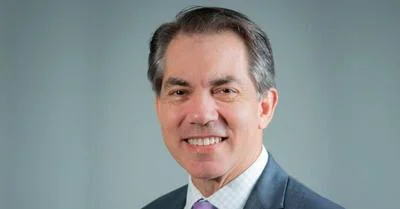CITIZENS FOR KEVIN SHEEHY issued the following announcement on May 20.
Vaccine for virus may be needed to restore confidence, Jay Powell says
Federal Reserve chairman Jay Powell has warned that a full US economic recovery may take until the end of next year and require the development of a Covid-19 vaccine. Photograph: Kevin Lamarque/Reuters
Share to FacebookShare to TwitterShare to Email AppShare to LinkedIn
Federal Reserve chairman Jay Powell has warned that a full US economic recovery may take until the end of next year and require the development of a Covid-19 vaccine.
“For the economy to fully recover, people will have to be fully confident. And that may have to await the arrival of a vaccine,” Mr Powell told CBS News on Sunday night. A full revival would happen, he said, but “it may take a while . . . it could stretch through the end of next year, we really don’t know”.
He added: “Assuming there is not a second wave of the coronavirus, I think you will see the economy recover steadily through the second half of this year.”
Mr Powell told CBS it was likely there would be a “couple more months” of net job losses, with the unemployment rate climbing to as high as 20-25 per cent. But he said it was “good news” that the “overwhelming” majority of those claiming unemployment benefits report themselves as having been laid off temporarily, meaning they are expecting to go back to their old jobs.
Oil prices and stocks in Asia rose on Monday despite the gloomy outlook. West Texas Intermediate, the US crude benchmark, climbed 4.4 per cent to take it above $30 a barrel for the first time in two months. Brent crude, the international benchmark, rose 3.6 per cent to $33.67 a barrel. Japan’s Topix was up 0.4 per cent and China’s CSI 300 index of Shanghai- and Shenzhen-listed stocks added 0.6 per cent.
Donald Trump, US president, said last week that he hoped to have a vaccine ready by the end of 2020. But public health experts, including Anthony Fauci, the head of the US National Institute of Allergy and Infectious Diseases, and Rick Bright, the recently ousted head of the US Biomedical Advanced Research and Development Authority, have warned that the process is likely to take longer.
Dr Fauci, a high-profile member of Mr Trump’s coronavirus task force, has said he expects the search for a vaccine to take at least a year to 18 months. But Dr Bright has said that was too optimistic.
Some world leaders have also raised doubts about the immediate prospects for a vaccine. Giuseppe Conte, prime minister of Italy, said at the weekend that his country could “not afford” to wait for a vaccine, while Boris Johnson, UK prime minister, warned that a vaccine “might not come to fruition” at all.
Mr Powell said that while lawmakers had “done a great deal and done it very quickly”, Congress and the Fed may need to do more “to avoid longer-run damage to the economy”.
The Fed chairman said fiscal policies that “help businesses avoid avoidable insolvencies and that do the same for individuals” would position the US economy for a strong recovery post-crisis.
Mr Powell also reiterated his position against using negative interest rates, something Mr Trump has called for. The Fed chairman told CBS that the Federal Open Market Committee had eschewed negative interest rates after the last financial crisis in favour of “other tools” such as forward guidance and quantitative easing.
“I continue to think, and my colleagues on the Federal Open Market Committee continue to think, that negative interest rates is probably not an appropriate or useful policy for us here in the United States,” he added.
The Fed’s crisis-fighting measures so far, including cuts in base interest rates to near-zero and a series of programmes to supply liquidity, have led to sharp rebounds in financial markets from lows in late March.
But economic data remain bleak. US unemployment surged to a postwar high of 14.7 per cent in April, with more than 36 million Americans filing for unemployment benefits since the coronavirus pandemic first spread to the world’s largest economy.
The US Congress has already approved nearly $3 trillion of economic relief measures intended to support struggling businesses and individuals, but there is growing consensus in Washington that more fiscal stimulus will be needed – even if Democrats and Republicans are divided over how to dole out federal funds.
Late on Friday, the Democrat-controlled House of Representatives passed Nancy Pelosi’s plan for $3 trillion in new stimulus spending.
But Mitch McConnell, the Senate’s senior Republican, has dismissed the proposed “Heroes Act”, an 1,815-page bill that includes $500 billion for state governments and $375 billion for local authorities struggling to balance increased costs and lower tax revenues triggered by the pandemic.
Republicans are drafting their own proposals, including a “liability shield” for businesses to avoid litigation stemming from workers contracting coronavirus while at work.
Mr Trump has repeatedly called for the next stimulus to include a cut to payroll taxes – deductions for entitlements such as social security and Medicare. Last week, Larry Kudlow, the top White House economic adviser, suggested that lower corporate taxes and looser business regulation should be part of any future relief package.
The Trump administration has taken a more bullish stance on the US economic recovery than Mr Powell, with White House officials repeatedly insisting that the economy will bounce back before the end of the year.
Mr Powell told CBS it was a “reasonable expectation that there will be growth in the second half of the year” but “we won’t get back to where we were by the end of the year”. – Copyright The Financial Times Limited 2020
Original source here.


 Alerts Sign-up
Alerts Sign-up